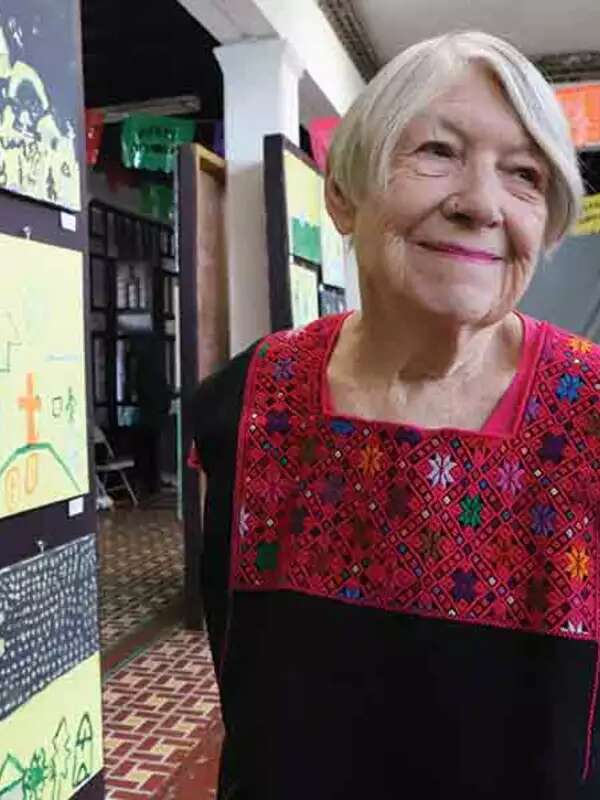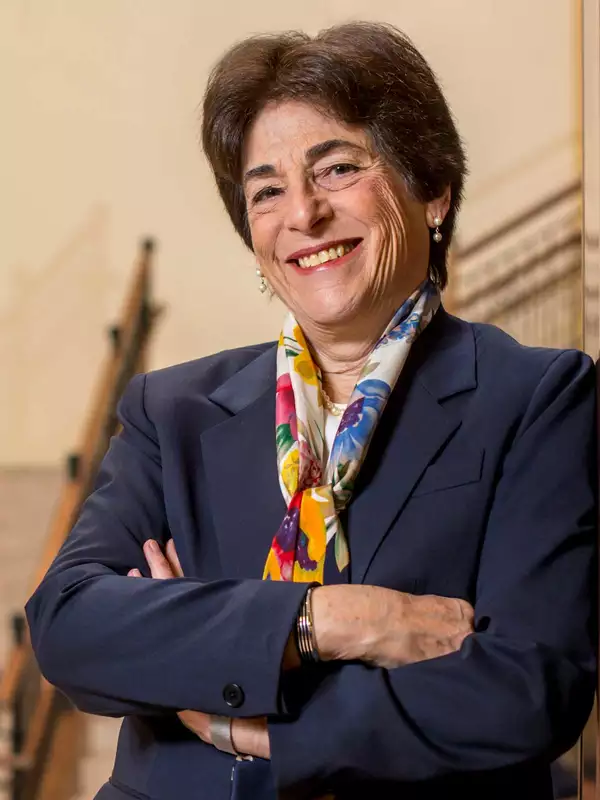

This summer, Susan A. Cole ’62 will be reveling in some “me time.” This well-deserved respite comes after decades in higher education, including the past 23 years as president of Montclair State University in New Jersey.
Becoming the leader of a large public institution — Montclair State has over 21,000 undergraduate and graduate students — would have seemed utterly improbable to Cole when she entered Barnard College at the age of 16, intent on a career in the theatre. Although a commuter student, she rented an off-campus apartment at the urging of her mother, who felt too nervous waiting for Cole to come home to Brooklyn after working late in Barnard’s theatre.
After earning a degree in English at Barnard, she attended Brandeis University on a playwriting fellowship. She’s not quite sure why she wound up with a doctorate in English and American literature, but it proved useful in gaining employment while waiting for her theatre career to take off. “I took my Ph.D. and started teaching at the City University of New York [CUNY], and as they say, the rest is history,” says Cole.
As CUNY faculty, Cole felt there was much that could be done to make the system run better. She got involved in committees and task forces, trying to push issues forward that needed attention. When one of the college presidents in the CUNY system became president of Antioch College, she gladly accepted a position there as the associate university dean for academic affairs.
“Then I rediscovered the thing about myself that was always true, since infancy, which is I really like to be in charge; I really like to be managing an enterprise. It feels very natural to me, and so having once started that, I just kept going,” says Cole.
In 1998, she became the eighth president of Montclair State University, the first woman to hold the position. Under her leadership, the student body has become dramatically more diverse and now better reflects the demographics of the state of New Jersey, with a 14% jump in the number of Latinx students and a 3% increase in Black or African American students enrolled in the university.
As the student body grew, Cole more than doubled the university’s residential facilities and facilitated the construction of 3 million square feet of new academic and performance space. And four new schools and colleges have been added: the School of Communication and Media, the John J. Cali School of Music, the School of Nursing, and University College.
Cole announced her decision to retire at the beginning of the 2020-2021 academic year, while helping to navigate the university through the extraordinary challenges of the COVID-19 pandemic. Leading a diverse public institution through this time was particularly stressful, as the student population includes many first-generation and lower-income students.
“The challenge for me was in keeping the university present, open, and there for our students who desperately needed us to see them through this pandemic, while at the same time not allowing them to be physically on the campus,” Cole says. “We did succeed in offering science and performing arts courses on campus in very carefully constructed ways, but of course, the vast majority of our instruction went off-campus [virtual].”
Maintaining a sense of connection for students, keeping faculty engaged, handling logistics, and dealing with the financial issues of the pandemic was “relentless and unending,” says Cole. “This is not a sit-by-the-fire-sipping-sherry kind of job.”
While this year was difficult, Cole’s impact on the university will, without a doubt, be long lasting, thanks to her extraordinary efforts. As U.S. senator Cory Booker told Montclair magazine: “As Montclair State University continues to grow, it will be Dr. Susan Cole’s vision and legacy that laid the foundation for the University’s success in the years to come."


